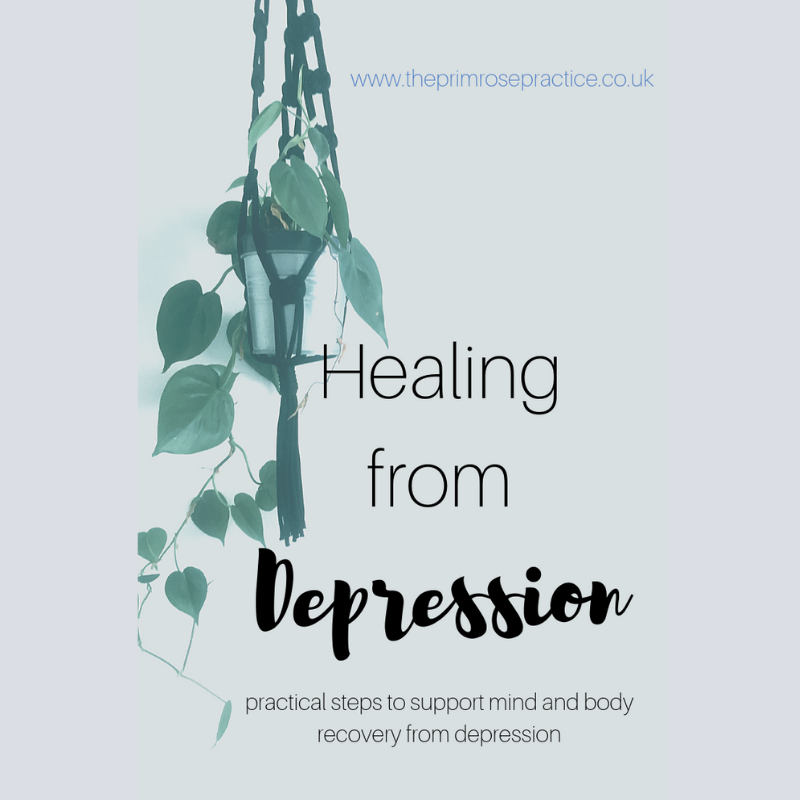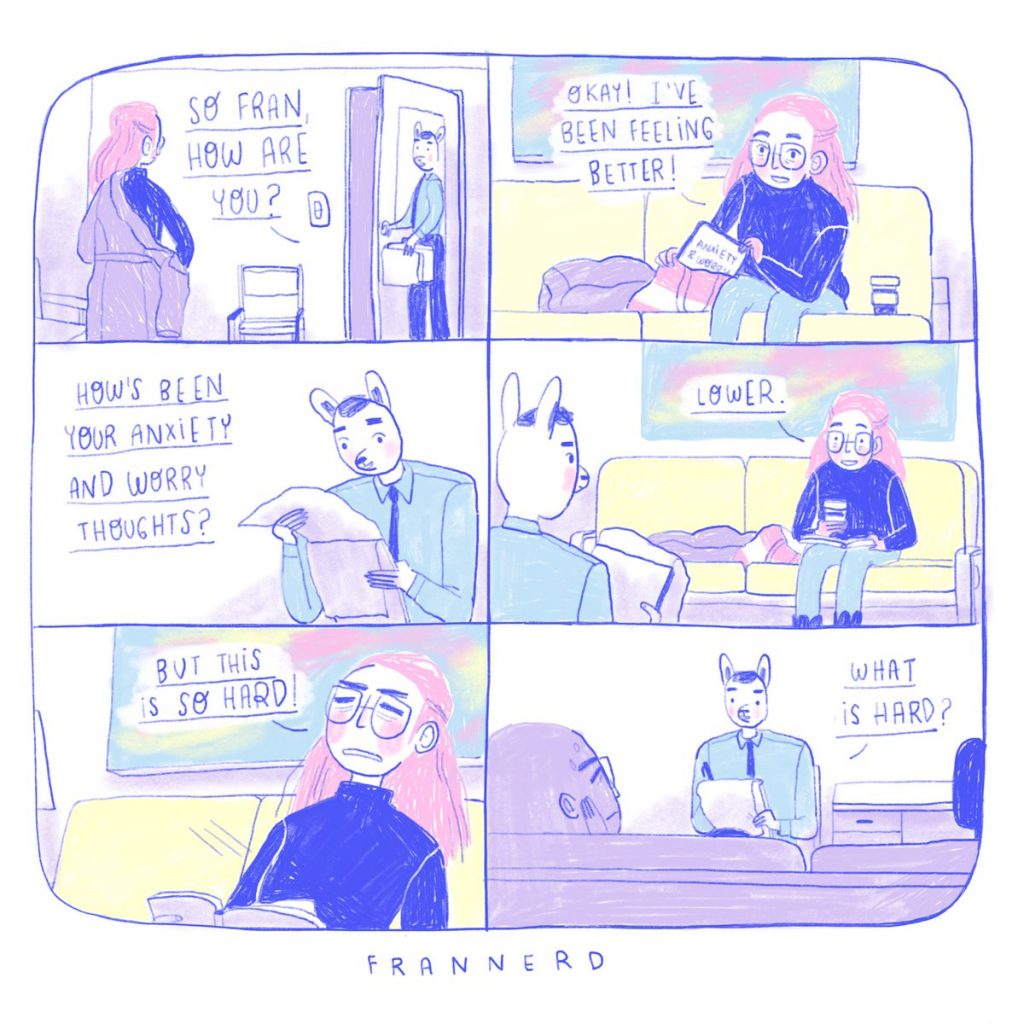Healing from Depression: Practical Steps to Support Mind and Body.
“As tough as it is, depression can be dealt with in a paradoxical way. See it as a visitor, perhaps an unwelcome one, but one who is visiting whether you like it or not. Make a place for your guest. Invite your depression to pull up a chair with you in front of the fire, and sit with it, without looking for a way to escape. Allow the sadness and emptiness to cleanse you and help you explore your loss in its entirety. When you allow yourself to experience depression, it will leave as soon as it has served its purpose in your loss. As you grow stronger, it may return from time to time, but that is how grief works.” – On Grief and Grieving
What to do about depression is a very difficult question to answer. Depression is an illness that affects millions of people worldwide. It is a complicated multifactorial health problem rooted in complex interactions of biological, psychological, and social variables. The World Health Organization predicts that by 2030 more people worldwide will be affected by depression than by any other illness. It not only affects humans but it also affects other mammals, for instance, lion, birds and other animals can respond to the death of a mate by withdrawing from life, not eating or caring for themselves and some even die as a result.
In On Grief and Grieving by Elisabeth Kübler-Ross and David Kessler they speak of Depression as one stage of loss. They write “ After bargaining our attention moves squarely into the present. Empty feelings present themselves, and grief enters our lives on a deeper level, deeper than we ever imagined. This depressive stage feels as though it will last forever. It’s important to understand that this depression is not a sign of mental illness. It is the appropriate response to a great loss. We withdraw from life, left in a fog of intense sadness, wondering, perhaps, if there is any point in going on alone. Why go on at all?”
What they describe is what’s known as situational depression, depression that is related to loss, circumstance and other factors. This is different from major depressive disorder, or endogenous depression (coming from within) which, according to the ICD-10 diagnostic manual is an episode of varying degrees of depression that last for two weeks or more. Major depressive episode is a serious illness with a high risk of suicide. This guide may be useful as an adjunctive for major depressive disorder, but should never be used in place of medication or management by a health care professional.
Struggling with a mental illness can seem like an uphill battle. Although you may not fulfill a diagnoses for major depressive disorder, you may be like millions of others who struggle with the roller coaster of mental illness. You may experience days of anxiety and depression, days when you struggle to get out of bed or meet with friends and other day when you feel relatively free. This is the case for many of the patients that I treat in my therapy practice.
During the days that you are battling your illness it can be helpful to know that despite your feelings of pain and immobility keeping to a certain life structure will help you deal with your troubles better in the long run, even if it doesn’t cure them. An important thing to keep in mind is that it will pass, there will be times when you feel happy or content again.

So how can we adjust our lifestyles to support our mental health? Let’s go through some of the common approaches that are being researched and practiced by more and more people.
Caring For Your Body
- Nutrition – Anti Inflammatory Diet: Dr. Andrew Weil in his book “Spontaneous Happiness” explores the connection between inflammation in the body and illness. What we do know is that modern industrial food (fast food and processed foods) are not good for us and eating this way promotes inflammation in the body. Low in nutrients and high in proinflammatory fats and carbohydrates it is better to avoid these kinds of foods when trying to feel physically and mentally well.
- Exercise – Movement is essential to our mental well-being. The literature on the benefits of physical exercise on depression is extensive and the research publications are now pretty much all in accordance that physical exercise is at the very least important and beneficial as an adjunctive treatment, if not as a stand alone treatment, in the treatment of mild depression and anxiety.
- Sleep Hygiene-We all know how we feel after a bad night’s sleep. With some of my patients, once we addressed their sleep issues we discovered it was the sole cause of their depression.
- Cut out caffeine, alcohol, and any other recreational drugs that disrupt mood and sleep.
- Cut out any unneccesary prescription drugs-It’s time to write out what you are taking and talk to a doctor about what could be cut out or supplemented.
- Get exposure to light-A common form of depression is SAD or Seasonal Affective Disorder. It affects many people during the Winter months when light is at a low. Although the exact mechanisms for what cause SAD is still unknown, most experts consider light to be a critical factor. Force yourself to get outdoors and if the outdoor light is problem consider investing in a full-spectrum light for the house.
Caring For Your Mind
- Medication/Anti-Depressents: What we know for sure is that antidepressants aren’t a cure for depression. According to Dr Stephen Ilardi, respected psychologist and author, antidepressants only have about a 50% success rate. People dealing with severe depression will often have to be patient and work with a very skilled psychiatrist to find the right medication or combination of medication that works for them. Although this process can be frustrating, and there is no cure, it can be a life saver. Be weary of anyone that tells you to reject this as an option, It depends on your clinical diagnoses. Some of my clients have said that medication simply puts a floor in for them to deal with their depression and it is not uncommon for depression to be managed by a combination of support, psychotherapy and anti-depressent medication. No matter whether you decide to try medication or not, the other lifestyle factors can not be ignored.
- Consider starting therapy– Psychotherapy is an effective and powerful way to start to unravel the multi factors of your depression in a professional environment.
- Self help– Read books or listen to talks/podcasts about depression. You will learn a lot as well decreasing any shame or stigma you carry.
- Creative practice-Keep a journal and work on your creative practice daily. In his book “Opening up by Writing it Down” , Dr. Pennebaker uses scientific research to show the benefits of creative, expressive practice.
- Calming the mind with mindfulness meditation.
- Limiting information overload-This is now becoming common knowledge even among the guys that created our social media platforms. Too much social media, too much information and we become unhappier. Learn how to limit your usage of screens and feel better for it.
Caring For Your Spirit
- Go into nature-We are simply creatures of nature and if we have too little contact with the immense power and beauty of it, then we suffer. Nature reminds us that we are part of something greater than our daily mental struggles.
- Volunteer work– Especially as expats or immigrants we suffer from a disrupted sense of community. Volunteer work can help create a sense of belonging whilst doing something that takes you out of yourself.
- Social interaction-Lonliness is a powerful predictor of depression. Numerous studies show that people with few intimate social contacts are more likely to be depressed than those that have a rich network of family and friends.
- Appreciate art and beauty.
- Practice forgiveness.
- Practice gratitude.
In his classic work Suicide, Emile Durkheim (1858-1917), the father of modern sociology wrote, “Man cannot live without attachments to some object which transcends and survives him…(if) we have no other object but ourselves, we cannot avoid the thought that all our efforts will finally end in nothingness, since we ourselves disappear.” Regardless of how your feeling, do the things that you need to do. As they say in recovery “Fake it until you make it!”

Depression is characterized by a withdrawel from life and a struggle to find energy, that is why these steps are so difficult to take when one is in the trenches of their feelings. If you are struggling, keep this list in mind and reach out for help. If you are considering suicide please contact the crisis service in your area. In Berlin you can call the Berliner Krisendienst 24 hours a day and 7 days a week.

I’m interested to hear how you cope with your depression. Let me know in an email or in the comments.

